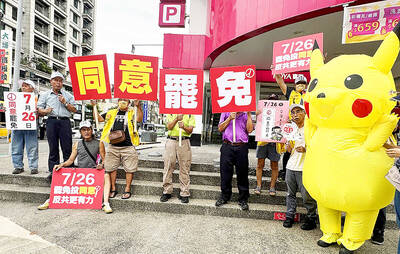King Arthur claims to be "the untold true story that inspired the legend." In the name of accuracy, apparently, some familiar legendary elements have been altered or dropped altogether. Merlin (Stephen Dillane), it turns out, was not a magician but the shadowy leader of the Woads, a guerrilla army of Pictish freedom fighters with stringy hair, blue faces and tattooed bodies. Since the knights of the Round Table are stubbornly pagan (and skeptical of their leader's Christianity, which is wobbly at best), they are not about to go off in search of the Holy Grail.
And though Lancelot (Ioan Gruffudd) at one point casts a smoldering glance in the direction of Guinevere (Keira Knightley), nothing more comes of the mythic triangle of king, queen and knight. Lancelot, in any case, is more of a fighter than a lover, and so, in spite of an obligatory cuddle with Arthur on the night before the big battle, is Guinevere.
Historians will debate the veracity of all this, assuming they have nothing better to do. But it will be clear to most moviegoers that this true story, far from being untold, was inspired by at least a half-dozen previous movies, from The Seven Samurai to Braveheart.

PHOTO COURTESY BVI
David Franzoni, the screenwriter, also wrote Gladiator, and Clive Owen's Arthur, like Russell Crowe's Maximus, both faithfully serves the Roman empire and turns against its authoritarian abuses. He and his knights are sent on a rescue mission that recalls the one undertaken by Bruce Willis in Tears of the Sun, the previous movie directed by Antoine Fuqua, who directed King Arthur.
Really, though, originality is not the point of this movie, any more than historical verisimilitude is. It is a blunt, glowering B picture, shot in murky fog and battlefield smoke, full of silly-sounding pomposity and swollen music (courtesy of the prolifically bombastic Hans Zimmer). The combat scenes are no more coherent than the story, which requires almost as much exposition as the last Star Wars movie. Luckily there is an element of camp that prevents King Arthur from being a drag.
In this version Arthur's knights are a ragged band of foreign conscripts stationed in the shadow of Hadrian's Wall, where they fight an occasional skirmish with the pesky Woads, who gyre and gimble in the wabe. Arthur's mixed parentage -- he is half Roman and half British -- results in an identity crisis as he simultaneously grows disillusioned with the corruption and cruelty of Rome and succumbs to Guinevere's Woady charms.
Arthur's men, for reasons efficiently explained in the first 10 minutes of the movie, are required to serve the empire for 15 years. Cerdic, the Saxon leader, is played by Stellan Skarsgard, whose halting, throaty delivery and gleefully hammy villainy confirm his stature as the Swedish Christopher Walken. Cerdic's lieutenant is his son Cynric (Til Schweiger), who sports a spiffy plaited soul patch and a slightly different accent, and who leads the Saxons into a battle on the ice that is the film's most original and satisfying set piece. The rest of it is mostly grunting, roaring and hacking, conducted by some fine, cheerfully slumming actors, notably Ray Winstone (as a lusty, cantankerous knight named Bors) and Mads Mikkelsen (as the enigmatic Tristan).

From the last quarter of 2001, research shows that real housing prices nearly tripled (before a 2012 law to enforce housing price registration, researchers tracked a few large real estate firms to estimate housing price behavior). Incomes have not kept pace, though this has not yet led to defaults. Instead, an increasing chunk of household income goes to mortgage payments. This suggests that even if incomes grow, the mortgage squeeze will still make voters feel like their paychecks won’t stretch to cover expenses. The housing price rises in the last two decades are now driving higher rents. The rental market

July 21 to July 27 If the “Taiwan Independence Association” (TIA) incident had happened four years earlier, it probably wouldn’t have caused much of an uproar. But the arrest of four young suspected independence activists in the early hours of May 9, 1991, sparked outrage, with many denouncing it as a return to the White Terror — a time when anyone could be detained for suspected seditious activity. Not only had martial law been lifted in 1987, just days earlier on May 1, the government had abolished the Temporary Provisions Effective During the Period of National Mobilization for Suppression of the Communist

Fifty-five years ago, a .25-caliber Beretta fired in the revolving door of New York’s Plaza Hotel set Taiwan on an unexpected path to democracy. As Chinese military incursions intensify today, a new documentary, When the Spring Rain Falls (春雨424), revisits that 1970 assassination attempt on then-vice premier Chiang Ching-kuo (蔣經國). Director Sylvia Feng (馮賢賢) raises the question Taiwan faces under existential threat: “How do we safeguard our fragile democracy and precious freedom?” ASSASSINATION After its retreat to Taiwan in 1949, the Chinese Nationalist Party (KMT) regime under Chiang Kai-shek (蔣介石) imposed a ruthless military rule, crushing democratic aspirations and kidnapping dissidents from

Fundamentally, this Saturday’s recall vote on 24 Chinese Nationalist Party (KMT) lawmakers is a democratic battle of wills between hardcore supporters of Taiwan sovereignty and the KMT incumbents’ core supporters. The recall campaigners have a key asset: clarity of purpose. Stripped to the core, their mission is to defend Taiwan’s sovereignty and democracy from the Chinese Communist Party (CCP). They understand a basic truth, the CCP is — in their own words — at war with Taiwan and Western democracies. Their “unrestricted warfare” campaign to undermine and destroy Taiwan from within is explicit, while simultaneously conducting rehearsals almost daily for invasion,